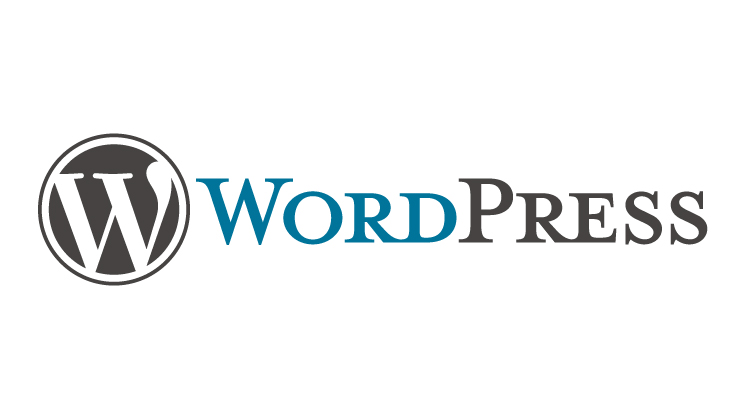Content Management Systems (CMS) are pivotal in shaping individuals’ and businesses’ digital presence in the vast landscape of website creation. Choosing the right CMS is crucial as it determines the ease of design, functionality, and overall user experience. In this article, we’ll comprehensively compare two influential CMS platforms – WordPress and Webflow – to help you make an informed decision for your web development journey.
WordPress

– Overview and History
WordPress, launched in 2003, has evolved from a simple blogging platform to a versatile CMS powering over 43% of websites on the internet. Its open-source nature and vast community contribute to its widespread popularity.
– Installation and Setup
Setting up a WordPress site is straightforward, with various hosting providers offering one-click installations. This accessibility makes it an attractive option for beginners.
– Themes and Customization Option
WordPress boasts an extensive library of themes and templates catering to diverse design preferences. Its customizability allows web design companies to tailor their websites to their unique visions.
– Plugins and Functionality
The strength of WordPress lies in its expansive plugin ecosystem. Thousands of plugins are available to enhance site functionality, from SEO optimization to e-commerce solutions.
– Content Creation and Management
WordPress provides a user-friendly WYSIWYG editor for effortless content creation. Media management and user role assignments also make collaborative content management a breeze.
– SEO and Analytics
With plugins like Yoast SEO, WordPress empowers users to optimize their content for search engines. Integration with analytics platforms offers insights into website performance.
– E-commerce Capabilities
The integration of WooCommerce transforms WordPress into a powerful e-commerce platform, facilitating the creation of online stores with customizable product pages and secure payment gateways.
– Pros and Cons of Using WordPress
WordPress is among the most popular CMS platforms, powering millions of websites worldwide. While it is a powerful platform with much to offer, it has its fair share of drawbacks. In this article, we’ll look at the pros and cons of using WordPress so you can decide if it’s the right platform for your needs.
PROS:
- Flexibility: WordPress is a very versatile platform that can be used for various websites and applications.
- Customizability: WordPress has thousands of themes and plugins, allowing you to customize your website to match your needs.
- Ease of Use: WordPress is relatively easy to use, even for beginners. With its simple interface and helpful documentation, you can start building your website quickly.
CONS:
- Security Issues: WordPress websites are often targets for hackers due to their popularity. While there are ways to secure your website, it is still something to remember when using WordPress.
- Performance Issues: Due to its flexibility and versatility, WordPress can be quite resource-heavy, leading to performance issues on your website.
- Limited Support: If you encounter any problems while using WordPress, you may have difficulty finding help since there is no official support team for the platform.
Webflow

– Overview and History
Webflow, a newer player in the CMS scene, emphasizes visual web design and interactions. It provides an intuitive solution for those who prioritize design aesthetics.
– Visual Web Design and Interactions
Webflow’s drag-and-drop interface empowers users to create visually stunning websites without coding expertise. Its animation and interaction options add an extra layer of engagement.
– Responsive Design
With a focus on responsive design, Webflow enables the creation of device-specific layouts, ensuring seamless user experiences across different screen sizes.
– Hosting and Performance
Webflow’s hosting services offer fast loading times and reliable performance. The platform handles optimization, allowing users to concentrate on crafting their websites.
– Content Management and Blogging
Webflow offers content creation tools suitable for blogging and other content needs. While less extensive than WordPress’s capabilities, it provides sufficient options for effective content management.
– E-commerce Features
Webflow’s e-commerce integration is growing, allowing businesses to establish online stores. While more feature-rich than some dedicated e-commerce platforms, it can meet the needs of smaller operations.
– Pros and Cons of Using Webflow
When it comes to choosing a CMS platform for your website, there are a lot of options to choose from. Two of the most popular platforms are WordPress and Webflow. Both platforms have pros and cons that you should consider before deciding.
PROS:
- Webflow is a great platform for those who want to create responsive websites without coding.
- The platform is very user-friendly and has a drag-and-drop interface that makes it easy to use, even for beginners.
- Webflow also has a large community of users who are always willing to help with any questions or problems.
CONS:
- Although Webflow is user-friendly, it does have a bit of a learning curve.
- The platform can be expensive, especially if you use premium features or plugins.
- If you’re not careful, creating messy code with Webflow is easy.
WordPress vs Webflow: Comparison
In comparing WordPress and Webflow, several factors come into play:
– Ease of Use and Learning Curve
WordPress’s wide adoption and user-friendly interface make it approachable for beginners. Webflow’s visual approach appeals to those who prioritize design over technical complexity.
– Customization and Design Flexibility
WordPress’s extensive theme and plugin ecosystem make it a powerhouse for customization. Webflow, on the other hand, offers unparalleled visual design capabilities for a more artistic touch.
– Performance and Hosting
Webflow’s managed hosting provides seamless performance optimization, but WordPress’s hosting options vary, requiring more attention to maintain optimal speed.
– SEO and Marketing Capabilities
WordPress’s established SEO plugins provide comprehensive optimization tools. Webflow offers a simpler approach that might suit smaller projects.
– E-commerce Solutions
WordPress’s WooCommerce integration is ideal for larger e-commerce ventures. Webflow suits smaller online stores or those who prioritize design aesthetics.
– Pricing Models
WordPress itself is free, but hosting and premium plugins can add up. Webflow offers tiered pricing plans with higher costs for more advanced features.
– Community and Support
WordPress’s extensive community means there’s a wealth of resources available. Webflow has a growing community, but it’s less extensive.
– Scalability and Future Growth
WordPress’s plugin ecosystem allows for scalable growth, making it suitable for projects of all sizes. Webflow can handle change, but its focus on visual design might have limitations.
Use Cases
When to Choose WordPress
– For content-heavy websites with intricate features.
– When extensive customization and specialized functionality are required.
– When an established plugin ecosystem is crucial.
When to Choose Webflow
– For projects with a strong emphasis on visual design and interactions.
– When rapid prototyping and simplicity are priorities.
– For small to medium-sized businesses looking for a visually captivating online presence.
Decision Factors
– Identify project requirements: Determine your website’s goals and features.
– Evaluate design preferences: Decide whether you prioritize customization or visual aesthetics.
– Consider long-term scalability: Factor in potential growth and how the platform accommodates it.
– Budget constraints and pricing considerations: Compare costs and features to align with your budget.
Wrap Up
In the WordPress vs. Webflow debate, both platforms offer distinct advantages. Your choice should reflect your project’s needs, your level of technical expertise, and your design aspirations. By understanding the strengths of each platform and weighing them against your priorities, you’ll be well-equipped to create a compelling online presence that resonates with your audience. Remember, the journey is as important as the destination – choose wisely and confidently embark on your web development journey.